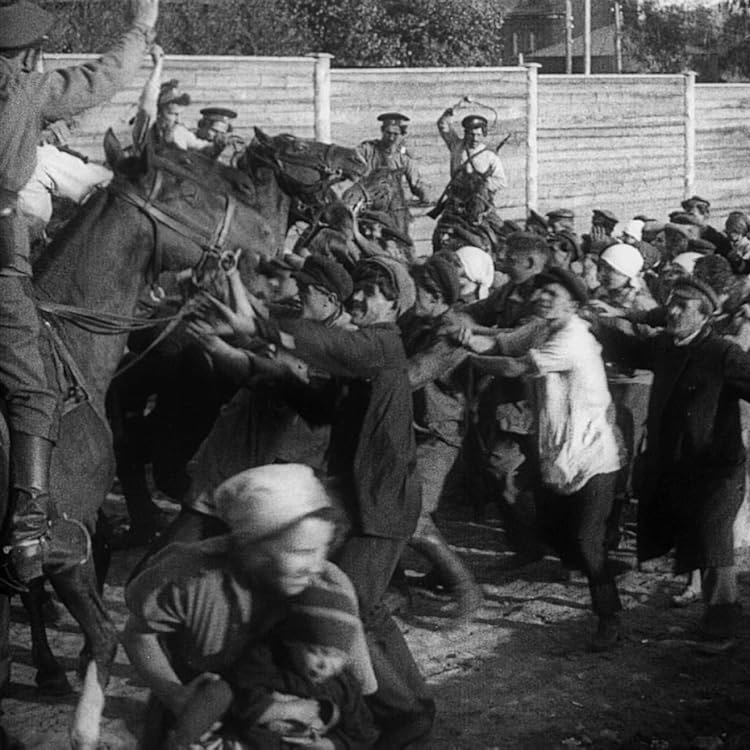Brunswick Underground Film Fest 2025 Review - Strike
Images courtesy of Brunswick Underground Film Festival.
Sometimes it all just becomes too much. The drudgery of work, the constant repeating shifts, the humiliation from the boss. All to earn a wage that barely meets your needs. What do you do when that point is reached?
YOU STRIKE!
Sergei Eisenstein’s 1925 film Strike, his first feature length work, is a film with a message. It tells the story of a factory strike taking place in 1903, pre-Revolutionary Russia. After accusations of thievery from the boss cause one of their colleagues, Yakov, to kill himself, the workers are driven to strike, completely shutting down their factory.
Eisenstein’s film-making is deeply effective, as well as economical. He uses quick cuts, title cards and superimposition with aplomb. Eisenstein’s skill in the edit should not come as a surprise - he is the inventor of the montage after all. One notable example of Eisenstein’s skill comes during the suicide scene: as Yakov removes his belt to use as a noose, Eisenstein cuts to the huge leather bands that run between the factory machines and their motors. As his colleagues cut Yakov down again, we are shown these bands shaking as though it was one of them being cut, suggesting that Yakov was killed by the machines themselves. These quite simple and very quick insert shots turn what would be a scene of tragedy into a political argument. It was the cold hand of capital that killed Yakov; it is on the boss's hands that his blood lies.
If it was not already clear, Strike is very direct in its politics. This, however, is not to its detriment, instead it becomes a thesis, an argument to workers around the world to fight for their rights and dignity at work.The thesis like structure of the film is clear with its opening; a quote from legendary revolutionary Vladimir Lenin,
“The strength of the working class is organisation. Without organisation of the masses, the proletarian is nothing. Organised it is everything.”
Like a topic sentence in an essay the film follows the line of this argument throughout. Strike doesn’t have a main character, instead its focus is the mass of the working class. We move between characters seeing vignettes of their choices and political conclusions. It is in this choice, among others, that Einstein represents the ideas in Lenin’s argument. The power of organised labour is so great that it can insert itself into the position of protagonist. It can affect the story with its choices the same way any individual character would.
Despite being 100 years old (exactly), Strike remains highly watchable and important. Its innovative editing holds your attention, and its politics remain as relevant today as they were in 1925. As anyone who works for a wage will tell you, we could have a few more people calling us out to Strike!
Follow Auley on Letterboxd and YouTube.
Auley is part of the RMIT socialist club - you can follow here.
Strike screened as part of Brunswick Underground Film Festival. Check out the festival website for more info here.

